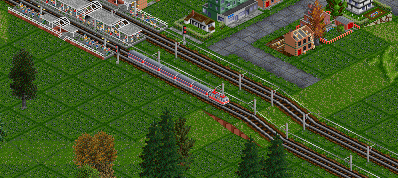These coaches were specifically developed for "S-Bahn" local services, which have lots of stops over short distances. That means they need to be optimized for fast passenger exchange at the stations, which is exactly what the x-coaches were developed for.
These coaches were specifically developed for the new S-Bahn services in the Rhine-Ruhr-area, with more than 100 units being produced between 1978 and 1998. They were in use until the 2020s. On the technical side they were optimized for faster acceleration, which was frequent on S-Bahn lines. There were also control cars, which are not available in the DBSetXL. In order to speed up passenger exchange they used three doors along the side instead of the usual two.
One can now discuss whether the coaches in the set are meant to be of this type of just some silverling coaches in different livery. I think the different characteristics make it obvious that the x-coaches are the base, especially as the "silverling" coaches were never run in this specific livery.
Characteristics
|
|
passenger coach |
| available by | 1975 |
|---|---|
| capacity | 40 |
| loading speed | 40 |
| speed limit | 140 kph |
| remarks | only with class 111 |
|
|
mail coach |
| available by | 1975 |
|---|---|
| capacity | 24 |
| loading speed | 12 |
| speed limit | 140 kph |
| remarks | only with class 111 |
Images and screenshots

A class 111 with an S-Bahn train accelerating away from a typical small S-Bahn stop.
Usage
The standard local coaches (silverling) are automatically changed into these coaches, when they are added to a class 111 engine. The faster loading speed is a huge improvement for lines with many stops, the mail coaches however do not differ from "silverling" coaches apart from color, so that negates the effect. But then again, baggage cars are nothing you would see on a S-Bahn train.
